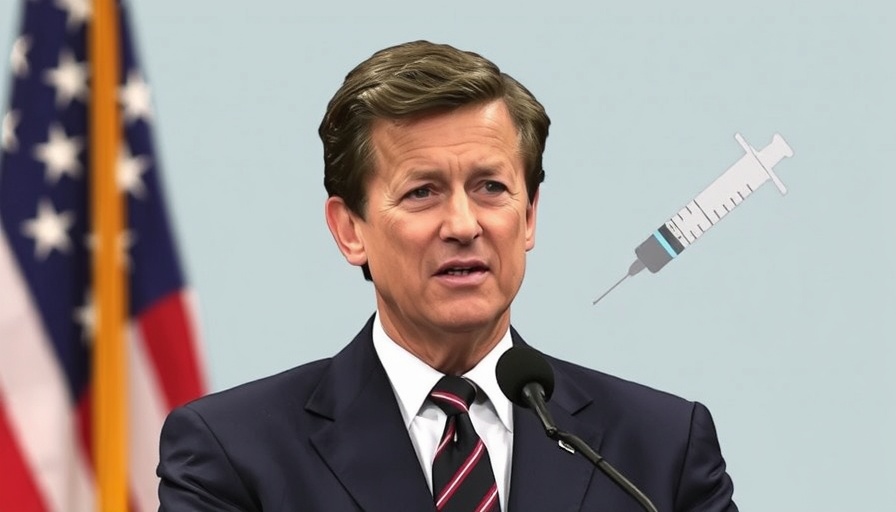
RFK Jr.'s MMR Vaccine Endorsement: A Shocking Shift?
In a significant departure from his previously held views, Health and Human Services Secretary Robert F. Kennedy Jr. has officially endorsed the measles, mumps, and rubella (MMR) vaccine, sparking profound reactions within the public and particularly among anti-vaccine advocates. Kennedy's statements came following meetings with families mourning the loss of loved ones to a recent measles outbreak in Texas, emphasizing the importance of vaccination to prevent further tragedies.
The Science Behind the Vaccine
Kennedy's proclamation aligns with established scientific consensus regarding the MMR vaccine’s efficacy. Medical experts, including Dr. Paul Offit from the Vaccine Education Center, assert that a single dose of the MMR vaccine is approximately 93% effective in preventing illness, while two doses increase the efficacy to about 97%. This data underscores the critical role of vaccination in curbing outbreaks and protecting community health.
Reactions from the Anti-Vaccine Community
While many in the medical community praised Kennedy's endorsement, it has incited fierce backlash from prominent anti-vaccine figures. Dr. Sherri Tenpenny, a notable activist, publicly criticized Kennedy for his comments, lamenting an apparent surrender to the very medical establishment that many followers believe should be challenged. This reaction encapsulates the tension within the anti-vaccine movement, highlighting how divergent opinions can fracture previously united coalitions.
A Historical Context of MMR Vaccine Controversy
The history of the MMR vaccine has long been marred by controversy, particularly after discredited studies falsely linked it to autism. This misinformation has fueled vaccine hesitancy, leading to outbreaks in communities with low vaccination rates. Kennedy's reaffirmation of the vaccine may challenge the prevailing beliefs of segments of his constituency, trapping him between public health advocacy and the fervent beliefs of his supporters.
Future Predictions and Societal Impact
The endorsement could lead to a pivotal shift in public perception regarding the MMR vaccine. As more public figures align with science-based recommendations, there is potential for reversing vaccine hesitancy trends caused by historical misinformation. Efforts to increase vaccine distribution in vulnerable areas will likely intensify, aiming not only to prevent disease but also to restore public trust in vaccination as a health imperative.
Taking Action: The Role of Community in Public Health
Community awareness and support for vaccinations are vital in addressing health emergencies. Individuals are encouraged to discuss vaccine benefits with medical professionals, particularly in schools and local health initiatives. By fostering open dialogues and addressing unfounded fears with factual information, communities can play a critical role in reducing disease spread and improving public health outcomes.
Conclusion: A Call to Action
The endorsement by RFK Jr. arguably signifies a crucial moment in the ongoing conversation about vaccines. As public opinion navigates through this shifting narrative, the commitment to factual discourse and community support for vaccinations becomes paramount. It is vital now more than ever to engage in thoughtful conversations about health and to advocate for informed choices. Join the movement toward understanding the importance of vaccinations and participate in community health discussions to protect our future.
 Add Row
Add Row  Add
Add 




 Add Row
Add Row  Add
Add 

Write A Comment